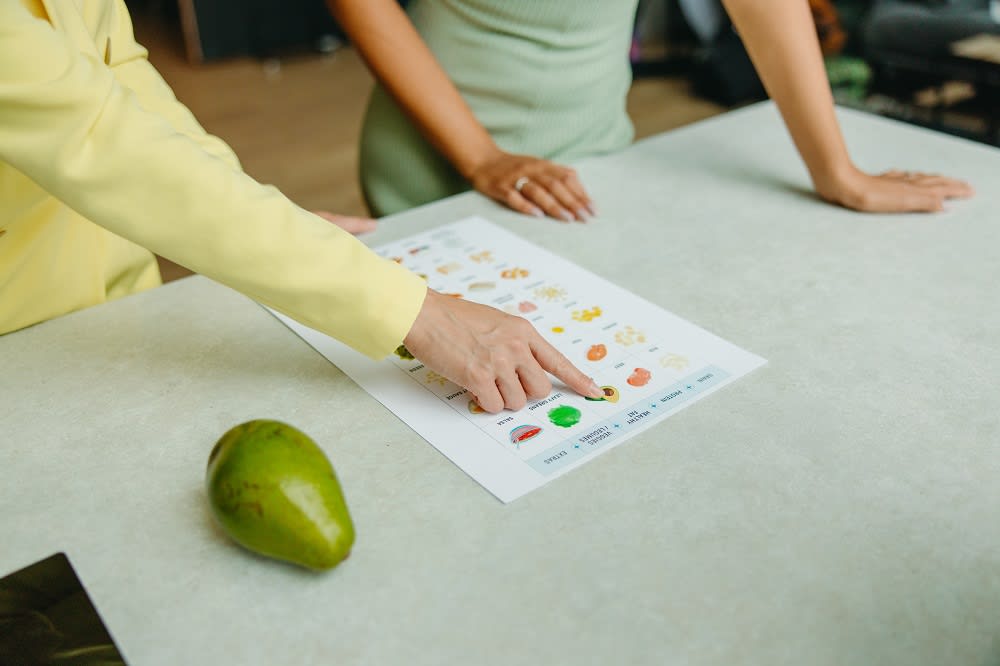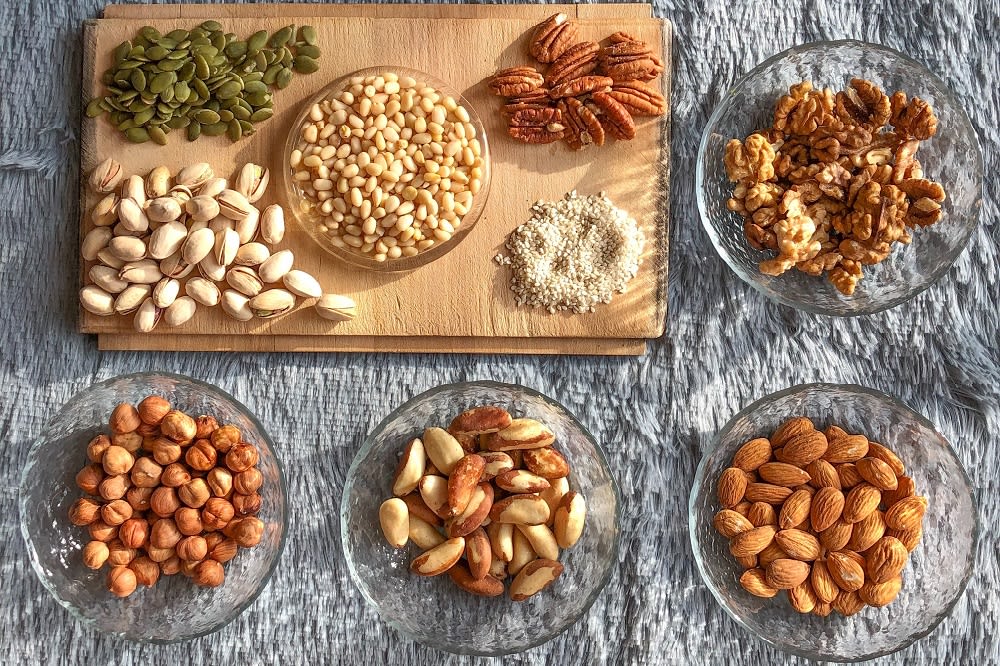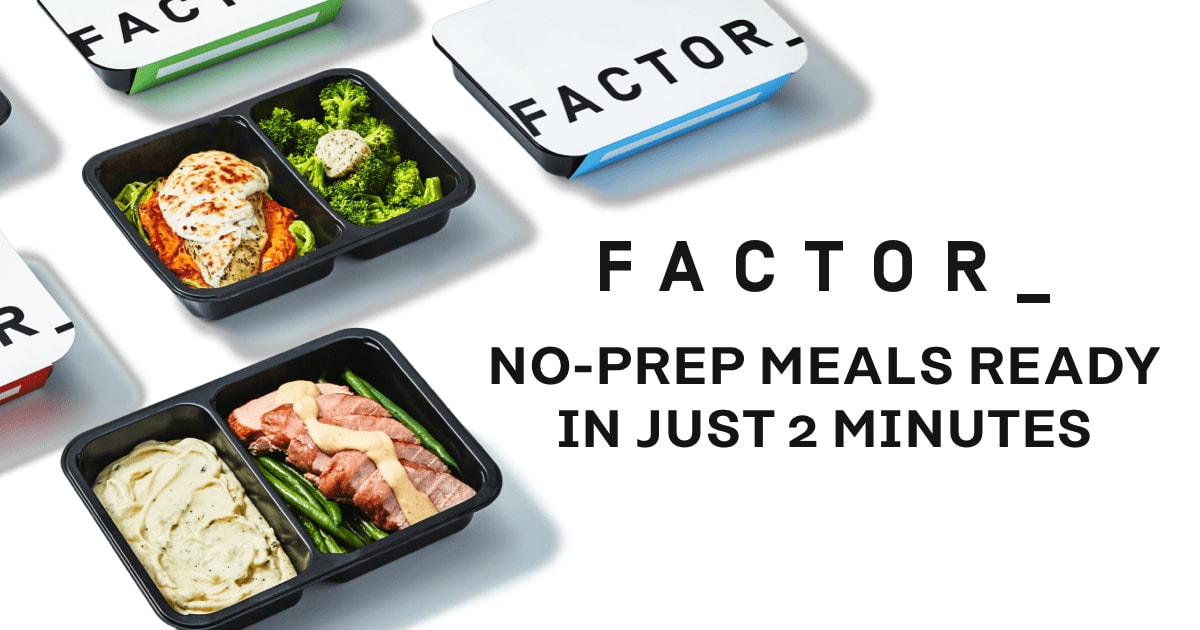High-Protein Diet Guide for Beginners
High-Protein Diet Guide for Beginners
High Protein Diet 101
How much protein did you eat yesterday? You probably can’t think of a number on the spot, but you might remember the scrambled eggs for breakfast, the grilled chicken salad at lunch, and the bean burrito for dinner. Those all count! Protein is essential for life. It’s one of the three major macronutrients in our diets: Protein, carbohydrates, and fats. Protein performs important bodily functions such as carrying molecules throughout our bodies, protecting us from viruses, and repairing cells.
A high-protein diet, however, can take a little extra planning. You’ll likely need to plan ahead to make sure you’re getting enough. Here’s our guide to all things protein—what benefits a high-protein diet offers, what the best protein sources are, and how to cook them.

Benefits of a High-Protein Diet
A high-protein diet is defined as any diet where at least 20% of your daily calories come from protein. Many high-protein diets restrict carbohydrates, but experts don’t generally recommend this; your body needs carbs. High-protein diets are most helpful for people in two categories: Individuals who are very physically active (such as athletes or military personnel), or overweight adults who are trying to lose weight.Protein helps you feel fuller so you’ll eat less. Some studies have even shown that protein benefits your metabolism, increasing the amount of calories you burn. Add consistent resistance training to your high-protein diet and you’ll be packing on the muscle mass.

How Much Protein Do I Need?
Adult men need about 56 grams of protein per day. Adult women should be aiming to eat about 46 grams. This is about 10-15% of your body weight or one-quarter of your plate. If you’re following a high-protein diet specifically, you’ll need even more than that—likely closer to two or three times that amount, or 25-35% of your body weight.A doctor or dietitian can help you figure out the correct amount of protein for your body’s needs and your goals. The amount of protein you need may vary depending on whether you're looking to lose weight or gain muscle, and whether you're working around any health issues.

What If I’m Vegetarian or Vegan?
If you don’t eat meat or other animal products, don’t worry! There are still plenty of ways you can meet your required daily protein levels, even on a plant-based diet. Common vegan protein sources include grains, beans, nuts, and other foods that you’ll find in the list below. We've also included several vegetarian foods that contain high amounts of protein.10 Good Protein Sources (and How to Eat Them)
Here are several foods, listed in order of the most protein, that are high in protein and other important nutrients. Incorporate these foods into your diet, being mindful of any allergies, sensitivities, or other dietary preferences. Try to avoid processed foods and foods with refined sugar. It can be helpful to keep a food journal, where you write down your meals and how much energy you had that day.
It’s also good to keep in mind that while many high-protein diets restrict carbs, this may not be the healthiest choice for your body. Load your plate with appropriate serving sizes of grains, fruits, and vegetables to go along with your protein. This will keep your body running well and your taste buds happy, too.
- Chicken

Protein per serving: 43 grams
Low in calories and high in protein, chicken is a good source of vitamin B, vitamin D, calcium, iron, and zinc. Choose white meat instead of dark meat and remove the skin to cut down on on fat. Chicken breasts serve as a great starting point for a variety of meals. From slow cooker recipesto soups to weeknight dinners with sides, the choices are virtually endless.
- Fish

Protein per serving: 40 grams (salmon)
Fish, such as the options in the following list, is full of protein:
- Salmon
- Flounder
- Haddock
- Tilapia
- Mahi-mahi
- Trout
- Cod
- Perch
Fish also contains omega-3 fatty acids, vitamin D, vitamin B2, calcium, phosphorus, iron, zinc, iodine, magnesium, and potassium—in other words, all kinds of good stuff. It’s fast and easy to cook a fish filet. Create a meal by adding a starchy side like rice or a baked potato, and vegetables such as asparagus or beans.
- Turkey

Protein per serving: 24 grams
Turkey isn’t just for Thanksgiving! This delicious meat contains vitamins, minerals, and of course, lots of protein. Remove the skin for less fat. You don’t have to cook a full Thanksgiving dinner every time you make turkey. Keep things simple by roasting some sweet potatoes and broccoli alongside the turkey breast. Or make a salad with the turkey.
- Shrimp

Protein per serving: 20 grams
Shrimp, a type of crustacean, is a low-calorie yet nutrient-rich food. Containing nutrients like potassium, zinc, and omega-3 fatty acids, shrimp also provides iodine—a mineral that your thyroid and brain need in order to function correctly. You can cook shrimp on the stovetop, in the oven, or in your air fryer. Add a side of veggies and rice and you have a delicious, healthy lunch or dinner ready to go.
- Protein Powder

Protein per serving: 17 grams (whey)
Whey protein is found in dairy products and extracted to make protein powder. It can be a helpful source of protein if you’re looking for ways to add more protein to your diet. Mix protein powder into a smoothie, add it to baked goods, or simply mix it with water and drink. If you follow a plant-based diet, plant protein is also an option. Most plant-based protein powders have about 20 grams of protein per scoop. They are made from seeds or grains.
- Tofu

Protein per serving: 10 grams
Tofu, or bean curd, is made by pressing curdled soy milk into blocks. This popular vegan protein is also gluten-free, contains many important vitamins and nutrients, and is low-calorie. Tofu tastes bland and lends itself to many flavorful recipes. You can scramble tofu, bake it in the oven, or sauté it in a pan on the stove. Try a tofu stir-fry and serve with brown rice and veggies. Or get creative and use tofu to make a quiche.
- Beans

Protein per serving: 8 grams
Beans serve as a good protein source for vegans and non-vegans alike. Choose options like garbanzo beans, black beans, or pinto beans to add to your soups and salads. You’re not only getting protein when you eat beans. You’ll also benefit from the iron, folate, antioxidants, fiber, and other important nutrients found in this food.
- Dairy

Protein per serving: 8 grams (whole milk)
Dairy products include Greek yogurt, cow’s milk, cheese, and butter. Many of these items naturally lend themselves to breakfast. In other cases, you might choose to include them in your meals by adding cheese to a salad or sandwich; putting whole milk in a smoothie; or stirring a handful of berries into Greek yogurt for a snack.
Dairy provides you with calcium, which keeps your bones and teeth healthy and strong. Calcium also helps your blood clot, your muscles contract, and your heart and nerves work normally. If you’re vegan, make sure you’re getting enough calcium elsewhere in your diet. Good vegan sources of calcium include tofu, beans, sweet potatoes, kale, chia seeds, and almonds.
- Eggs

Protein per serving: 6 grams
If you’re looking for a good protein source, you can’t get much healthier than eggs. This nutrient-rich food holds vitamin A, vitamin B12, selenium, folic acid, omega-3 fatty acids, and other good stuff. With so many ways to prepare eggs—from scrambling to hard-boiling to frying—you’ll never get tired of this excellent protein source.
- Nuts and Seeds

Protein per serving: 6 grams (almonds)
Nuts and seeds are a great source of protein for vegetarians, vegans, and virtually any diet. Choose from options such as:
- Pumpkin seeds
- Peanuts
- Almonds
- Cashews
- Walnuts
- Pistachios
- Brazil nuts
- Flax seeds
- Chia seeds
- Hazelnuts
Nuts include important nutrients like vitamin E, magnesium, and selenium. Enjoy them alone as a snack or add them to a savory stir-fry or a sweet breakfast dish.
